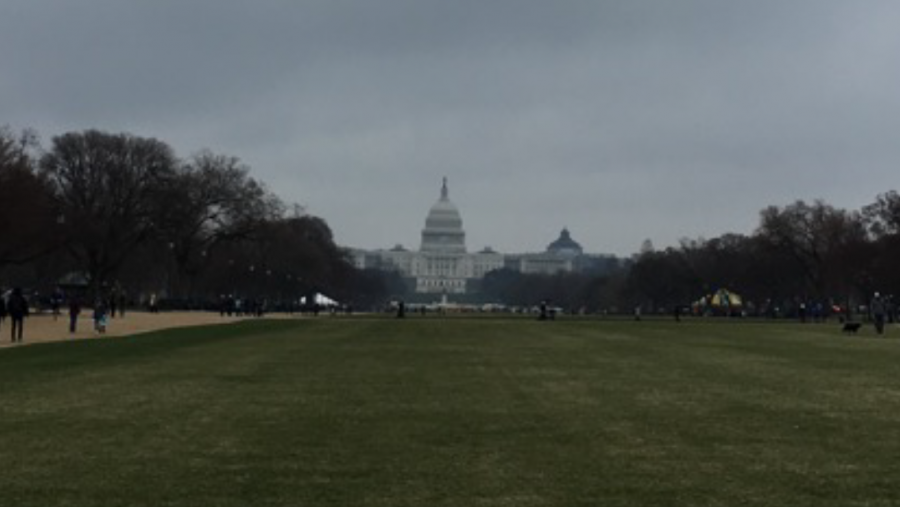New Congress To Be Seated In January, A Stone’s Throw From West Po
On January 3rd, 2019, members and members-elect of Congress alike will be sworn into their offices on Capitol Hill, officially commencing the 116th United States Congress. This past November, voters turned out in droves, motivated by their views on President Donald Trump, health care, immigration, Brett Kavanaugh’s confirmation to the Supreme Court, and so many other topics. NPR estimates that voter turnout reached 47.5%, the highest percentage in a midterm election year since the 1960s. 2018 saw around a 10% uptick from all voters in 2014 and a similar spike from voters under the age of 30. Meanwhile, , according to a survey conducted by government teachers. This midterm cycle, however, was a little more important than our underwhelming student voter turnout might suggest. Let’s take a look at what the new Congress will look like:
Senate: Overview
The effects of the record turnout were not exactly earth-shattering in the Senate. Democrats hoped for a “blue wave” in 2018, but the odds were pitted against them; 26 of their seats were up compared to only nine Republican seats. The GOP was able to bolster their 51-49 majority to 53-47. Five incumbent senators (4 D, 1 R) were ousted by their constituents, two appointees (1 D, 1 R) were officially elected for the first time, and three freshmen (1 D, 2 R) will fill the seats of those retiring.
Senate: Our Senators
In Virginia, Democratic incumbent Tim Kaine held on to his seat, defeating Republican challenger Corey Stewart by nearly 16 percentage points. Kaine was first elected to the Senate in 2012 succeeding fellow Democrat Jim Webb. Before his time in Washington, he served Virginians as Lieutenant Governor (2002-06) and Governor (2006-10). Kaine serves on four Senate committees¹ and earned his party’s vice presidential nomination in 2016.
Kaine will rejoin fellow Democrat Mark Warner in Virginia’s Senate delegation. Warner is a two-term incumbent, first winning election to the Senate in 2008. Counting Warner’s days as Governor of Virginia (2002-06), 2019 will mark the duo’s 11th year of co-service to the Commonwealth of Virginia. Warner serves on five Senate committees¹, but most notably he is the Vice Chairman of the Senate Intelligence Committee. His seat is up for election in 2020, but his intent to run is currently unknown.
Senate: Leadership
President: Mike Pence (R-VP)
Majority Leader: Mitch McConnell (R-KY)
Majority Whip: John Thune (R-SD) (formerly Conference Chairman)
Minority Leader: Chuck Schumer (D-NY)
Minority Whip: Dick Durbin (D-IL)
House: Overview
While the Republicans strengthened their Senate majority, Democrats made a huge splash on the other side of the Capitol. Leading up to election night, the GOP’s majority was 236-197, but they would see it completely erased on November 6th and the following weeks. Amidst a voter fraud controversy in North Carolina’s 9th Congressional District one House seat is up in the air, but the Dems’ incoming majority sits at 235-199, an almost identical reversal. The lower chamber will see a whopping 101 new faces² (67 D, 44 R), as many incumbents fell out of favor with their constituents or even their own party.
On January 3rd, the new House is set to elect the Speaker of the House, the single most powerful legislative official in the United States. With the Democrats in charge, it is up to them to decide on their nominee. Former Speaker Nancy Pelosi of California’s 12th District is the front-runner for the job after prevailing in the House Democratic Caucus vote. This may come as a surprise as nearly 100 Democrats campaigned, many winning, on the promise that they would not support her bid for the Speakership. Pelosi has been a Representative since 1987 and served as Speaker from 2007 to 2011.
House: Our Representative
The West Potomac community is situated within Virginia’s 8th Congressional District, which will again be represented by Don Beyer (D). For those wondering, yes, it is the same Don Beyer who owns the car dealerships. First elected to the House in 2014, he won his third contest in 2018, this time tripling up Republican challenger Thomas Oh. Beyer served two terms as Lieutenant Governor of Virginia in the 1990s and was the U.S. Ambassador to Switzerland and Liechtenstein from 2009 to 2013. He serves on three committees¹, and is set to become the chairman of the House Science, Space, and Technology Subcommittee on Oversight when the new Congress convenes.
House: Leadership
Speaker of the House (likely): Nancy Pelosi (D-CA12)
Majority Leader: Steny Hoyer (D-MD05)
Majority Whip: Jim Clyburn (D-SC06)
Minority Leader: Kevin McCarthy (R-CA23)
Minority Whip: Steve Scalise (R-LA01)
Notes:
¹All committee assignments are from the 115th Congress (2017-18)
²Article does not account for races called after date of publication
































































